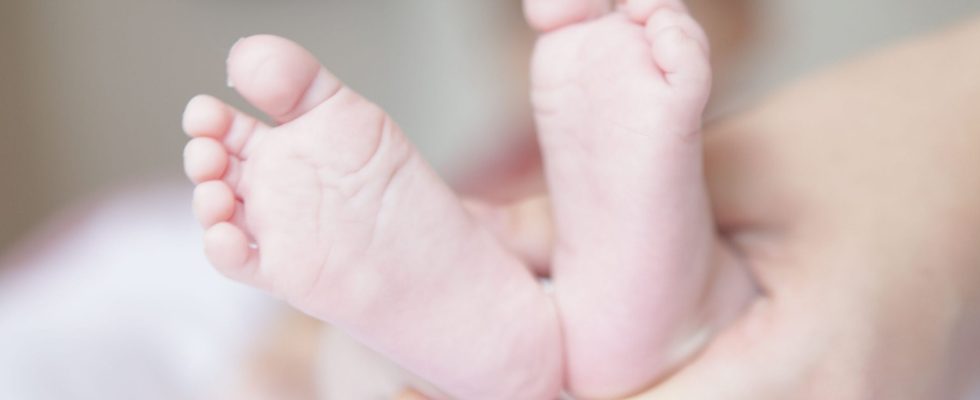It was inevitable: surrogacy, a divisive subject par excellence where different political, ethical, feminist and scientific movements clash, had to be included in A of JDD, “new formula”. This is done in the edition dated April 28, with 4 incriminating pages and a CSA survey for Europe 1, CNews and The Sunday Journal showing that nearly 59% of French people are in favor of GPA, which undoubtedly justifies this. As medical guarantor, Professor René Frydman, the “father” of Amandine, the first test tube baby, in promotion of his latest work The Tyranny of Reproduction (Editions Odile Jacob). He criticizes GPA: “a biological, social, psychological aberration… a major emotional risk… abandonment by prescription… where we say that the child designed to be abandoned will not suffer since some people want it…”*. Is it possible, in this outpouring of militancy, to summon some scientific data, at least in the countries that produce it? Let’s get back to the facts to try to calm the debate.
Is surrogacy in full “explosion”?
Is GPA a public health issue? In France, due to the lack of a possible census for this illegal practice, it is estimated that there are 200 or 300 births by GPA abroad per year out of 735,000 births, including 20,233 by PMA (2.7%) and 600 to 895 adoptions for every 10 000 requests. In countries that authorize GPA while regulating it, the phenomenon only represents 0.02% of births. For example in the United States, the CDC recorded in approximately 2020 8,000 children born to a surrogate mother/woman for 3.7 million births. Certainly figures increasing since 2015, but without explosion. As sociologist Irène Théry points out, “even multiplied by 10 there is no tidal wave”. This is an answer to the fear of the “great invasion”.
What is the impact of GPA on child development?
We might as well write it: no study allows us to answer this question pejoratively. But the scientific debate around GPA is biased by the poverty of most social science studies, often qualitative, carried out thanks to the contribution of activist families or, on the contrary, associations, particularly Catholics, opposed among others to GPA.
However, several meta-analyses demonstrate the absence of impact on the child. Like the one published in 2016 in one of the best gynecology-obstetrics journals (55 reviewed studies): “Perinatal outcomes of children are comparable to those of standard IVF and egg donation, and there is no evidence of harm to children born through surrogacy.” Rare university teams have formed longitudinal follow-up cohorts, such as the multidisciplinary team of Suzan Golombok at the University of Cambridge (United Kingdom) with 40 young adults (average age: 20 years) born by traditional surrogacy (the surrogate mother donates her eggs), surrogacy with an egg donor, egg donation or sperm donation, and raised by heterosexual couples. In all cases, the parents had met the surrogate mother before treatment. The majority of young adults were informed of their conception before the age of 4. Another cohort, that of Marie-Christine Williams-Plouffe, researcher and coordinator of the Canada Research Chair on procreation for others and family ties (Gatineau, Quebec)**.
In both cases and others, no pejorative signal. On the anti-GPA side, these are the testimonies that respond to the studies. Like Olivia Maurel, their leading figure, who campaigns for the abolition of the GPA which gave birth to her and accuses her surrogate mother of having transmitted her bipolar disorders to her: “The surrogacy agency should have rejected her for that reason, but she didn’t.” In the JDDshe assures: “I do not condemn people who resort to GPA” while being the spokesperson for the militant declaration of Casablanca, which asks States to “sanction people who use surrogacy on their territory and to sanction their nationals who use surrogacy outside their territory”. In the name of the rights of the child, even though there are no warning signals to date…
An additional risk for surrogate mothers?
In countries where surrogacy is regulated, the question of protecting the surrogate mother remains central. It interweaves ethical questions, notably that of informed consent, or the danger of control exercised by the intended parents which can extend to the daily behavior of the surrogate mother (lifestyle, tobacco, alcohol, sexuality, etc.) medical decisions relating to pregnancy (embryo reduction, genetic screening, sex choice, eugenic drift, etc.) or even the possibility of withdrawal (abortion, keeping the child, etc.). Added to this are methodological questions (who is called upon to judge the “aptitude” of candidates to become “good gestational carriers”, on what criteria and with what skills?) and medical (risks linked to twin pregnancies constantly decreasing in United States, postpartum depression, pregnancy complications, cesarean section rate and its implications..).
Suffice it to say that comparative studies are complicated to establish based on different socio-demographic criteria. However, on the PubMed server there were 2667 scientific articles responding to the theme “surrogate mother”. Most of them dealing with ethical issues. None can demonstrate, for example, that the risk of postpartum depression is “significantly higher” as mentioned by opponents of GPA.
We see that the media debate around GPA has become increasingly difficult because it is political and… less and less informed.
Professor Gilles Pialoux is an infectious disease specialist and author of An almost perfect gifta novel published in 2024 by Mialet-Barrault and having GPA as a backdrop.
*Also read the interview with Professor François Olivennes (obstetrician gynecologist) who, like Bruno Le Maire, says “ in thought » on the subject of GPA (La Tribune Sunday of January 21, 2024)
**Interviewed by the author during the writing of the novel
.
